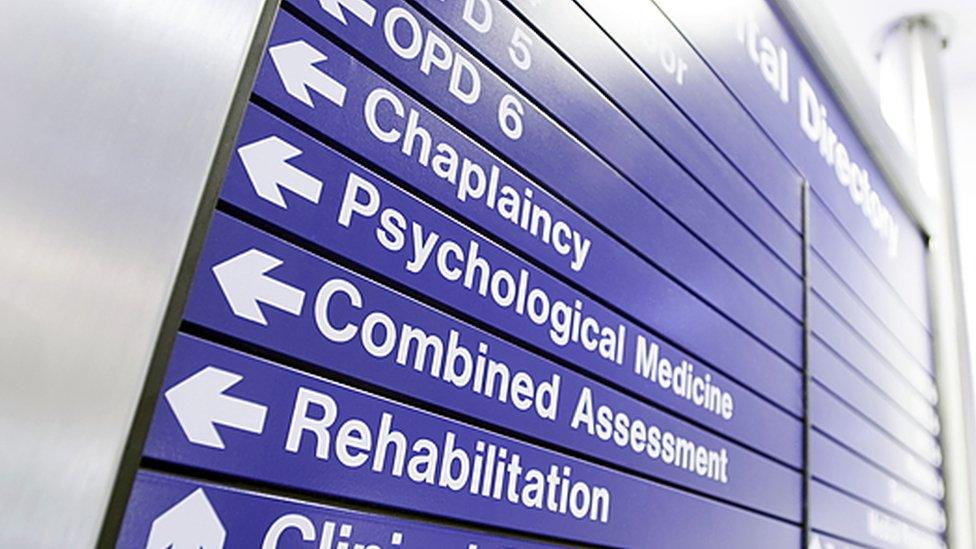Blocked beds blight mental health care
- Published

Many mental health patients find their hospital discharge delayed
Delays in discharging people from hospital are rising more rapidly in mental health trusts than other parts of the NHS in England, a study shows.
NHS England data found a 56% rise in the number of bed days lost to delayed discharge in psychiatric trusts in October 2016 compared to November 2015.
There was a comparable rise in acute trusts of 30%.
A spokeswoman said the Department of Health was investing £400m over four years to support people in their homes.
"No-one should face unnecessary delays in being discharged," she said. "The Five Year Forward View for Mental Health will transform services by 2020/21 to make sure urgent improvements are made."

'I felt in danger'
Oliver Lang: "I've got paranoia that I'll get locked up if my mental health takes a dip"
Oliver Lang, from Norfolk, spent two months longer than necessary in a psychiatric unit. The 27-year-old, who has Asperger's syndrome, was initially detained under the Mental Health Act.
But weeks after he was told he could leave, he remained in the unit while two separate mental trusts argued over who should pay for his care.
"I felt I was in danger in there because a lot of things happen in (psychiatric) hospitals. I felt if someone attacked me, I'd have to defend myself," he said.
"But if I did defend myself and hurt someone, they'd say I was a danger to the public still and they'd keep me locked up for longer. So I was trying to be whiter than white."

A delayed discharge occurs when a patient is declared medically well enough to leave hospital but something else hinders their departure.
NHS England says 17,509 bed days were lost in October 2016 in the 24 trusts which particularly specialise in mental health and learning disability care, an increase of nearly 56% on the previous November.
A broader analysis - including trusts that provide community as well as mental health services - shows a 43% increase between the two months.
Many of the problems are caused by a lack of social care packages available to support people once they leave hospital because of cuts to local authority budgets and rising demand.
But experts say mental health patients are further disadvantaged by poor community psychiatric provision and reduction to other support services such as detox, which has had a disproportionate impact on mental health.
Norman Lamb, the Liberal Democrat MP and former care minister, requested the research.
He said: "Its all part of a system under impossible strain. Mental health has suffered much more in terms of financial terms than the rest of the NHS, there's a discrimination."

Norman Lamb says there is discrimination against mental health services
In 2015, an inquiry, external ordered by the Royal College of Psychiatrists found that the main reason that some mental health patients were having to travel long distances to get a hospital bed was because of delayed discharges and a lack of community psychiatric provision.
A report last May from the National Audit Office estimated that delayed discharges across England were costing the NHS £820m a year.
A BBC investigation in 2016 found that delayed discharges were also affecting mental health patients in Northern Ireland.
Paul Farmer, chief executive of the mental health charity Mind, said: "When you are hospitalised in a mental health crisis, you are at your most unwell and desperately need the right care at the right time.
"The time after leaving hospital is critical as that is when people are at the greatest risk of taking their own lives. People need the right support to recover and manage their mental health properly and trusts should be planning properly for discharge from the point at which someone goes into hospital.
"These types of problems are symptomatic of mental health historically not being given the attention and funding it deserves - mental health services have been underfunded for decades, at a time of rising demand."
- Published8 September 2016

- Published1 September 2016

- Published22 July 2016

- Published1 March 2016

- Published9 February 2016
